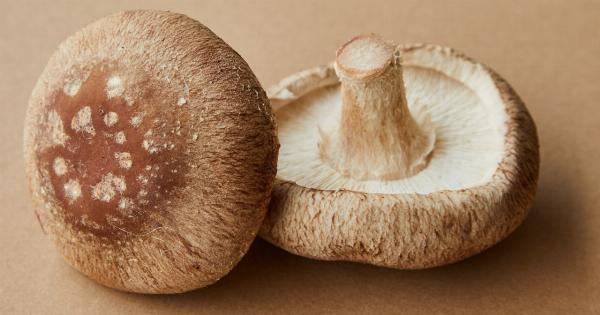Protein is an essential nutrient that is required for the growth, repair, and maintenance of tissues in our body. While many people associate protein with meat, there are plenty of plant-based sources that can provide all the protein you need.
In fact, some of the most unusual protein sources can be found in plants. In this article, we will explore some of these unusual plant-based protein sources to help you diversify your diet and meet your nutritional needs.
1. Spirulina
Spirulina is a blue-green algae that is packed with protein. It contains all essential amino acids and is considered a complete protein source. It is also rich in vitamins, minerals, and antioxidants.
Spirulina can be consumed in powder or tablet form and can be added to smoothies, juices, or even used in baking.
2. Hemp Seeds
Hemp seeds are a great plant-based protein source and provide a good balance of essential fatty acids, vitamins, and minerals. They are also rich in fiber, making them beneficial for digestion.
Hemp seeds can be sprinkled on top of salads, mixed into yogurt or smoothies, or used as a topping for baked goods.
3. Quinoa
Quinoa is a pseudo-grain that is often referred to as a superfood. It is highly nutritious and contains all essential amino acids, making it a complete protein source.
Quinoa is versatile and can be used in a variety of dishes, including salads, stir-fries, and as a substitute for rice or pasta.
4. Green Peas
Green peas are usually associated with being a side dish but they are actually a great source of plant-based protein. They are also high in fiber and a good source of vitamins A, C, and K.
Green peas can be added to soups, stews, salads, or mashed to create a pea spread.
5. Seitan
Seitan is a plant-based protein made from wheat gluten. It has a meat-like texture and is a popular meat substitute in many vegetarian and vegan dishes.
Seitan is rich in protein and low in fat, making it a great option for those looking to increase their protein intake.
6. Edamame
Edamame is a young soybean that is often served as a snack or appetizer. It is a complete protein source and also contains fiber, vitamins, and minerals. Edamame can be boiled, steamed, or roasted and enjoyed as a snack or added to salads and stir-fries.
7. Pumpkin Seeds
Pumpkin seeds, also known as pepitas, are a nutrient-dense snack that is rich in plant-based protein. They are also a good source of healthy fats, magnesium, and zinc.
Pumpkin seeds can be enjoyed roasted as a snack, used as a topping for salads or soups, or incorporated into baked goods.
8. Amaranth
Amaranth is a grain-like seed that is high in protein and contains all essential amino acids. It is also a good source of fiber, iron, and calcium.
Amaranth can be cooked and used as a base for porridge, added to soups or stews, or used as a gluten-free alternative to flour in baking.
9. Chia Seeds
Chia seeds may be tiny, but they are packed with protein, fiber, omega-3 fatty acids, and various minerals.
They can absorb liquid and form a gel-like consistency, making them ideal for creating chia puddings or adding to smoothies, yogurt, or baked goods.
10. Lentils
Lentils are a type of legume that is rich in protein, fiber, and various vitamins and minerals. They come in different colors and can be used in soups, stews, salads, or even as a meat substitute in recipes like lentil burgers or meatballs.
Conclusion
Adding these unusual plant-based protein sources to your diet can not only help you meet your protein requirements but also provide a wide range of other essential nutrients.
From spirulina and hemp seeds to quinoa and chia seeds, there are plenty of options to explore. So, why not give these unusual protein sources a try and add some variety to your meals while reaping the nutritional benefits they offer!.





























